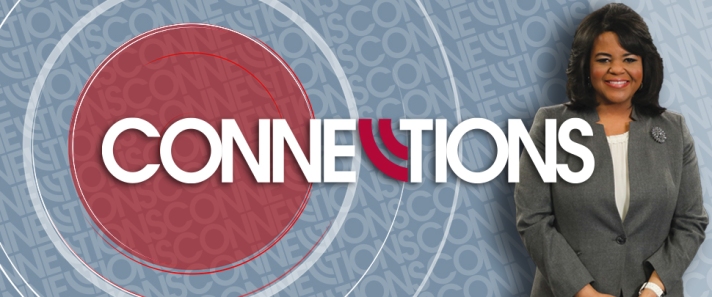Oft heard critiques of academia is that our work is esoteric and/or inaccessible. Over the past few days I have released two new peer-reviewed studies here at Cloaking Inequity that have implications for school reform: School Turnaround: Calling the Bluff of Accountability? and Expansive School Segregation in Texas: Predicts Accountability Rating. The journal at the top of the field of educational policy is arguably Education Evaluation and Policy Analysis (EEPA).What is EEPA?
EEPA publishes scholarly manuscripts of theoretical, methodological, or policy interest to those engaged in educational policy analysis, evaluation, and decisionmaking. EEPA is a multidisciplinary policy journal, and considers original research from multiple disciplines, theoretical orientations, and methodologies.
The other day I received the June 2013 issue of EEPA. Honestly, I don’t always crack it open, but several of the articles caught my eye and the entire issue became plane reading. The topics range from CTE and mathematics achievement to Success for All to Vouchers. If you don’t have access to the current issue, I have grabbed a summary statement and then pasted the citations and abstracts below (Also, check out my EEPA article Accountability Texas-style: The progress and learning of urban minority students in a high-stakes testing context).
- Career and Technical and Mathematics: Accounting for observed and unobserved characteristics of students, CTE courses neither limit overall gains in mathematics learning nor the acquisition of basic and intermediate mathematics skills.
- Reclassification of ELs: Based on statewide achievement data from California including ELs, RFEPs, IELs (all initially identified English Learners: ELs + RFEPs), and English-only students (EOs), focusing on current ELs and excluding RFEPs (a) underestimates the population of IELs, (b) overestimates the achievement gap between IELs and EOs, and (c) decreases the likelihood of detecting progress when positive changes in achievement have taken place over time.
- Kindergarten and Mathematics: Children with the lowest levels of math skills benefited from exposure to basic mathematics content whereas other children benefited from exposure to more advanced content.
- Vouchers and Transfers: Low-performing voucher students tend to move from the voucher sector into lower performing and less effective public schools than the typical public school student attends, whereas high-performing students transfer to better public schools.
- College Coaches: Coaches improve the types of colleges that students attend by getting students to complete key actions and the most disadvantaged students appear to benefit.
- Teacher Value Added Models: Different Models, Different Answers. [They are not as “bulletproof” as policymakers would have you believe]
- Success for All: The impact of Success for All—including established long-term positive effects—depends on early exposure.
- NCLB and School Resources: NCLB did not influence overall instructional time in core academic subjects but did lead schools to reallocate time away from science and social studies and toward the tested subject of reading
Here are the article citations and full abstracts:
Robert Bozick and Benjamin Dalton Balancing Career and Technical Education With Academic Coursework: The Consequences for Mathematics Achievement in High School Educational Evaluation and Policy Analysis June 2013 35: 123-138 doi:10.3102/0162373712453870
Federal legislation has attempted to move career and technical education (CTE) from a segregated component of the high school curriculum to an integrated element that jointly improves both academic and career readiness. However, concerns remain about the ability of CTE to improve academic learning. Using a nationally representative sample of high school students, we examine the relationship between CTE coursework and mathematics achievement in high school. Accounting for observed and unobserved characteristics of students, we find that CTE courses neither limit overall gains in mathematics learning nor the acquisition of basic and intermediate mathematics skills. Additionally, engineering and technology courses, a subset of CTE courses that incorporate quantitative reasoning, logic, and problem solving, are unrelated with math achievement.
William M. Saunders and David J. Marcelletti The Gap That Can’t Go Away: The Catch-22 of Reclassification in Monitoring the Progress of English Learners Educational Evaluation and Policy Analysis June 2013 35: 139-156, doi:10.3102/016237371246184
When English Learners (ELs) demonstrate English language proficiency, they are reclassified as Fluent English Proficient (RFEP). Subsequently they are often left out of the analysis of EL progress because they are, technically, no longer ELs. This article examines the effects of including and excluding RFEPs from the analysis of EL progress. Based on statewide achievement data from California including ELs, RFEPs, IELs (all initially identified English Learners: ELs + RFEPs), and English-only students (EOs), the analysis demonstrates that focusing on current ELs and excluding RFEPs (a) underestimates the population of IELs, (b) overestimates the achievement gap between IELs and EOs, and (c) decreases the likelihood of detecting progress when positive changes in achievement have taken place over time. Implications are discussed.
Mimi Engel, Amy Claessens, and Maida A. Finch Teaching Students What They Already Know? The (Mis)Alignment Between Mathematics Instructional Content and Student Knowledge in Kindergarten Educational Evaluation and Policy Analysis June 2013 35: 157-178, doi:10.3102/0162373712461850
Kindergarten mathematics skills are important for subsequent achievement, yet mathematics is underemphasized in kindergarten classrooms. Using nationally representative data, this study explored the relationship between students’ school-entry math skills, classroom content coverage, and end-of-kindergarten math achievement. Although the vast majority of children entered kindergarten having mastered basic counting and able to recognize simple geometric shapes, their teachers reported spending the most mathematics time—typically about 13 days per month—on this content. On average, exposure to this basic mathematics content was negatively associated with math achievement across kindergarten. Importantly, children with the lowest levels of math skills benefited from exposure to this basic mathematics content whereas other children benefited from exposure to more advanced content.
Deven Carlson, Joshua M. Cowen, and David J. Fleming Life After Vouchers: What Happens to Students Who Leave Private Schools for the Traditional Public Sector? Educational Evaluation and Policy Analysis June 2013 35: 179-199, doi:10.3102/0162373712461852
Few school choice evaluations consider students who leave such programs, and fewer still consider the effects of leaving these programs as policy-relevant outcomes. Using a representative sample of students from the citywide voucher program in Milwaukee, Wisconsin, we analyze more than 1,000 students who leave the program during a 4-year period. We show that low-performing voucher students tend to move from the voucher sector into lower performing and less effective public schools than the typical public school student attends, whereas high-performing students transfer to better public schools. In general, transferring students realize substantial achievement gains after moving to the public sector; these results are robust to multiple analytical approaches. This evidence has important implications for school choice policy and research.
Jennifer L. Stephan and James E. Rosenbaum Can High Schools Reduce College Enrollment Gaps With a New Counseling Model? Educational Evaluation and Policy Analysis June 2013 35: 200-219, doi:10.3102/0162373712462624
Despite planning college, disadvantaged students are less likely to enroll in college, particularly 4-year colleges. Beyond cost and academic achievement, previous research finds that a lack of college-related social resources poses barriers. However, little research investigates whether schools can help. We examine whether, how, and for whom a new counseling model aimed at providing college-related social resources may improve college enrollment. Following nearly all seniors in Chicago Public Schools from senior year through the fall after high school, we find that coaches may improve the types of colleges that students attend by getting students to complete key actions. It is important that the most disadvantaged students appear to benefit. This research suggests that targeting social resources may improve the high-school-to-college transition for disadvantaged students.
Dan D. Goldhaber, Pete Goldschmidt, and Fannie Tseng Teacher Value-Added at the High-School Level: Different Models, Different Answers? Educational Evaluation and Policy Analysis June 2013 35: 220-236, doi:10.3102/0162373712466938
This article reports on findings based on analyses of a unique dataset collected by ACT that includes information on student achievement in a variety of subjects at the high-school level. The authors examine the relationship between teacher effect estimates derived from value-added model (VAM) specifications employing different student learning assumptions. Specifically, they compare teacher effectiveness estimates derived from a traditional lagged score VAM using pretests and posttests in a single subject area to those derived from VAM specifications employing a cross-subject student fixed-effects approach. The latter approach offers advantages for teacher evaluation systems due to significantly reduced data requirements; however, there is evidence that both the estimated effect size of teacher quality as well as estimates of individual teacher performance vary depending on the VAM methodology. In particular, teacher effects identified based on within-student cross-subject variation results in significantly smaller effect size estimates than do those generated from a more traditional lagged score model. The correlation across model specification ranges from .25 to .96 depending on the subject area.
Paul Hanselman and Geoffrey D. Borman The Impacts of Success for All on Reading Achievement in Grades 3–5:Does Intervening During the Later Elementary Grades Produce the Same Benefits as Intervening Early? Educational Evaluation and Policy Analysis June 2013 35: 237-251, doi:10.3102/0162373712466940
We evaluate the impact of Success for All literacy instruction in grades 3 through 5 using data from the same cluster randomized trial used to evaluate effects in the earlier grades (K–2). In contrast to the early benefits, there is no effect on reading achievement in the later grades, either overall or for students and schools with high or low baseline reading achievement. This suggests that the impact of Success for All—including established long-term positive effects—may depend on early exposure. As a result, educators may experience difficulty replicating the typical positive achievement impacts of the intervention when children participate in Success for All only during the later elementary grades, as is common for mobile students in program schools.
Thomas S. Dee, Brian Jacob, and Nathaniel L. Schwartz The Effects of NCLB on School Resources and Practices Educational Evaluation and Policy Analysis June 2013 35: 252-279, doi:10.3102/0162373712467080
A number of studies have examined the impact of school accountability policies, including No Child Left Behind (NCLB), on student achievement. However, there is relatively little evidence on how school accountability reforms and NCLB, in particular, have influenced education policies and practices. This study examines the effects of NCLB on multiple district, school, and teacher traits using district-year financial data and pooled cross sections of teacher and principal surveys. Our results indicate that NCLB increased per-pupil spending by nearly $600, which was funded primarily through increased state and local revenue. We find that NCLB increased teacher compensation and the share of elementary school teachers with advanced degrees but had no effects on class size. We also find that NCLB did not influence overall instructional time in core academic subjects but did lead schools to reallocate time away from science and social studies and toward the tested subject of reading.
Please Facebook Like, Tweet, etc below and/or reblog to share this discussion with others.
Want to know about Cloaking Inequity’s freshly pressed conversations about educational policy? Click the “Follow blog by email” button in the upper left hand corner of this page.
Twitter: @ProfessorJVH

 ecovery training at Duquesne University. I am currently working with the Fountas & Pinnel Leveled Literacy Intervention program.)
ecovery training at Duquesne University. I am currently working with the Fountas & Pinnel Leveled Literacy Intervention program.)
You must be logged in to post a comment.